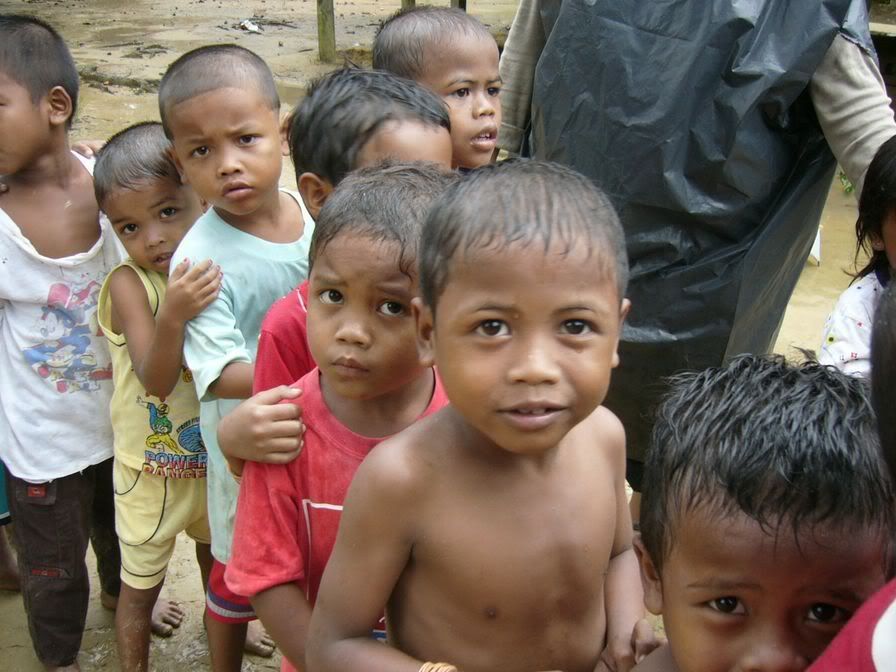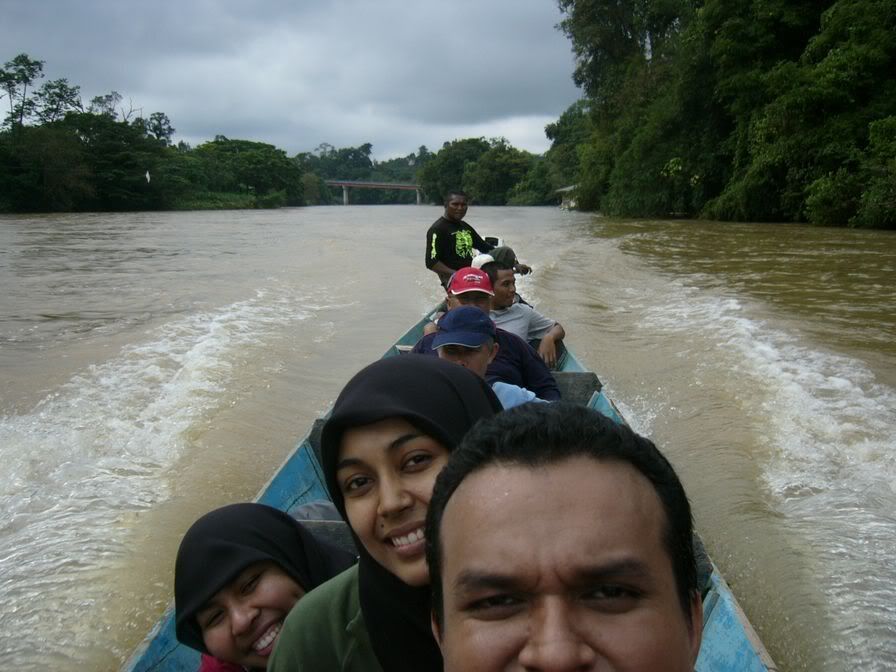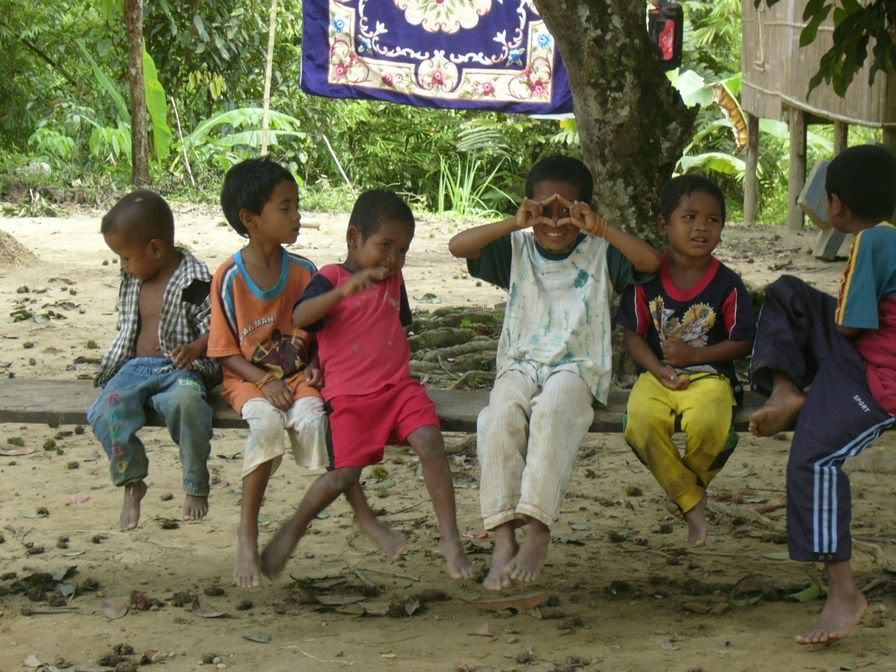
Date: July 14th 2008Location: Sunway Hotel Resort and SpaProgram: National Summit on Urban Poor & Low Income Groups
I had the opportunity to join a
National Summit on Urban Poor & Low Income Groups at Sunway Hotel yesterday. It was attended by some of the well known figures in Malaysia such as Paklah (Malaysia Prime Minister), Khalid Ibrahim (Menteri Besar Selangor), Ng Yen Yen (Minister of Women, Famlily and Community), Teresa Kok (Selangor State Exec Councillor), Ramon V Navaratnam (ASLI Chairman), Nungsari Ahmad Radhi (Vice Presiden Khazanah Nasional), Samy Vellu (President MIC), Syed Amin Al-Jeffri (President Kuala Lumpur Malay Chamber of Commerce), Mohamed Dahan Abd Latiff ( Exec Director GABEM), Koh Tsu Koon (Former Chief Minister of Penang), Denison Jayasooria (Chairman SUHAKAM) and Michael Yeoh (CEO ASLI).

It was a very good presentation and discussion regarding the urban poor as they the views come from many personal with different background.

p/s federal gov set rm800 as the poverty line for the urban poor, while pakatan rakyat set rm1500 as the poverty line for the urban poor which i would say extremely correct! If according to pakatan rakyat, i'm just above the poverty line...huhuu..
Report
The Asian Strategy & Leadership Institute and the Centre for Public Policy Studies co-organized the National Summit on Urban Poor and Low Income Groups on the 14th July 2008. The Malaysian Human Rights Commission (SUHAKAM) jointly organized the event. Prime Minister Abdullah Ahmad Badawi gave the Opening Speech, in which he whilst many other key individuals were present to contribute their thoughts and ideas about the problems of urban poverty in Malaysia.
The first session considered the adoption of a human rights approach towards eradicating poverty. Datuk Dr Denison Jayasooria (SUHAKAM), Prof. Dr Sulochana Nair (UM Centre for Poverty and Development Studies) and YB Teresa Kok (Selangor State Executive Councillor) discussed the situation on the ground, both from academic and pragmatic perspectives. The panel, moderated by Tan Sri Dato’ Dr Ramon V. Navaratnam as Chairman of the Centre for Public Policy Studies agreed that in modern civilization there is a just expectation of positive liberty — that the government is responsible for providing certain minimum necessities of living as part and parcel of human rights.
The second session focused on partnering the public and private sectors to combine efforts in fighting poverty. Also moderated by Tan Sri Dato’ Dr Ramon Navaratnam, the discussion amongst the panel of Datuk David Chua (ACCCIM), Dr Nungsari Ahmad Radhi (Khazanah Nasional) and Dato’ Abdul Ghani Arifin (Implementation Coordination Unit, Prime Minister’s Department) reached the conclusion that a tripartite effort, comprising the public, private and non-profit sectors, would be most effective in combating the scourge of poverty. In particular, the panelists highlighted the impossibility of the government alone aiding urban poor, and discussed the government’s recent efforts to improve coordination and cooperation in anti-poverty campaigns, primarily through the eKasih database.
Dato’ Seri Samy Vellu (President of the Malaysian Indian Congress) delivered the luncheon address, likening the many facets of urban poverty to the horns of a monster.
Although he commended the government’s pursuit of poverty eradication, he also noted that its role in the fight against poverty is changing, from that of a provider to that of an enabler and facilitator. He also reminded summit participants that it is important to avoid neglecting the need for social cohesion in urban communities.
After lunch, the third session focused on the provision of housing, healthcare and other social services for the urban poor and low income groups. Moderated by SUHAKAM Commissioner Dr Mohammad Hirman Ritom Abdullah, the panel included Datuk Hj. Mhd. Amin Nordin b Abd Aziz (from Dewan Bandaraya Kuala Lumpur), YAB Tan Sri Khalid Ibrahim (Selangor Chief Minister), YB Datuk Dr Ng Yen Yen (Minister of Women, Family and Community Development) and Datuk Eddy Chen (Chairman of the Real Estate and Housing Developers Association Institute). The panelists were critical of the government’s poverty benchmarks, and of the public housing development policies. However, they also noted several strong efforts on the government’s part to provide greater assistance for the poor, and touched on the upcoming announcement of a social safety net in the next federal budget.
The fourth session discussed the creation of business and employment opportunities. Dato’ Dr Michael Yeoh moderated the discussion, joined by panelists YB Prof. Sr. P. Ramasamy S/O Palanisamy, Dato’ Syed Amin Al-Jeffri, Dato’ Pardip Kumar Kukreja and Dato’ Mohammed Dahan Abdul Latiff. Again, the subject of inadequate poverty data was broached. The panelists agreed that it is imperative to provide poor entrepreneurs with credit and training so they can utilize their full potential, and fend for themselves.
The final session touched on how our anti-poverty policies affect national unity. This time Tan Sri Datuk Seri Panglima Simon Sipaun (Vice-Chairman of SUHAKAM) moderated, with Tan Sri Dr Koh Tsu Koon (Acting President of Parti Gerakan Rakyat Malaysia) and Dr Syed Husin Ali (representing YB Datin Seri Dr Wan Azizah Wan Ismail, President of Parti Keadilan Rakyat and Opposition Leader). There was a clear consensus that it is time for government policies to return to the original basis of the New Economic Policy—the eradication of poverty irrespective of race. Any policies contravening this should be reversed. Again, the government’s poor poverty statistics and questionable statistical assumptions were brought up.
Datuk Dr Denison Jayasooria then took the stage to summarise the findings and recommendations of the summit. Overall, he found fifteen points which summit panelists agreed on, and five clear and specific recommendations which need to be acted upon. The summit then ended with the closing speech of YB Datuk Robert Lau Hoi Chew, who delivered the address on behalf of Dato’ Seri Ong Ka Chuan.
Malaysia has done well in addressing poverty as a whole
As highlighted by the Prime Minister and many more, we have been very successful in bringing down the poverty rate. This is due to high economic growth and a variety of public assistance programmes in areas like education, housing, healthcare, etc.
Urbanisation and transference of rural poverty to urban areas is a cause for concern
Rural-urban migration contributes to stagnating or even growing poverty rates in urban areas. Urban poverty is a complicated problem, with numerous facets such as high-density housing estates, poor amenities, etc.
Overwhelming unhappiness with the poverty benchmark
Numerous panelists and speakers expressed unhappiness with the current definition of the poverty line income (PLI), which is far too low to reflect the actual costs of living on the ground. This is particularly true in urban areas, where everything has a price.
Revisit our approach
The summit saw different speakers expound on different approaches to tackling poverty, with the human rights approach being the focus of the very first session. There needs to be access to quality opportunities and a focus on empowerment in our anti-poverty policies, and there is overall a call for a review of our approach to and framework of urban poverty.
Focus on Intra-Ethnic Income Disparities
The Government has focused on inter-ethnic income disparities, although the more pressing issue are the growing intra-ethnic income disparities. Inequalities between the rich and the poor within each ethnic group need to be more urgently addressed.
A call for transparency and accountability
There is little coordination or accountability on the part of government agencies. Targets must be set and if they are not attained, those responsible must be made accountable.
The importance of local government
Local government has a crucial role, but is also the most inefficient compared to the federal and state governments. Planning standards are often not in line with the needs of the poor.
Structural issues and concerns
There is often a clash of priorities between rich and poor. When the government favours the rich in these issues, poverty becomes a structural problem.
We need tripartite cooperation
The public, private and non-profit sectors must work together towards eradicating poverty.
An integrated approach
Because of poverty’s multifaceted nature there is no easy solution. Education, healthcare, housing, transport, public amenities, and so on are all components of the solution to the poverty trap.
Low-cost housing and public amenities need to be reviewed
Public transit, schools, parks — all are important determinants of whether a public housing project can succeed. The management of low-cost housing projects must be reviewed.
Community-based approach
Many urban communities, especially in high-density low-cost housing estates, lack a sense of belonging. There is no social cohesion; without social cohesion, it is hard to make progress.
Strengthen entrepreneurs and skills
Training and capital are important so the poor who cannot find work can still make a living on their own. Enterprise is a value that should be particularly encouraged amongst lower income groups.
Creating business opportunities the poor can tap
In line with the Prime Minister’s emphasis on the disparity of economic opportunities in the country, to reduce the income gap, greater business opportunities must be made available to the poor. This is an excellent area for the private and non-profit sectors to work together with the government.
Poverty and ethnicity should not be linked
The government should not treat poverty as the sole province of any ethnic group; all Malaysian communities have their poor and downtrodden. Public allocations and priorities should hinge on access to opportunity, as stated by the Prime Minister, and not on race.
Reviewing the NEP
There is a need to revisit the foundation of our poverty policies, to ensure that they are not abused by unscrupulous people for their own ends, and to ensure that benefits and priorities depend not on race but on actual economic status.
Specific recommendations
1. Review the poverty line (PLI)
The benchmark by which we measure poverty is presently unrealistic, with almost universal consensus on this at the summit. With rising prices hitting urban areas especially hard, it is imperative that we ensure our measure of poverty is realistic and reflects the situation on the ground. The current PLI stands at RM720 in Peninsular Malaysia, RM960 in Sabah and RM830 in Sarawak, whilst almost 40 percent of households in Malaysia earn RM2, 000 and below.
2. Host a workshop on equality of opportunity
ASLI and other partners should hold an in-depth workshop on the issue of “Equalizing Access to Quality Opportunities”. The Prime Minister himself has promised to personally attend and support the effort. This theme needs to be refined more carefully to define what quality opportunities refer to.
3. Create a focal point in every ministry for coordinating efforts
A focal point at every ministry, which deals with the problems of poverty, should be established. The person responsible should liaise with a coordinating secretariat to ensure anti-poverty efforts do not work against but work with one another.
4. An effective, tripartite multi-stakeholder monitoring system
The government must work together with private firms and NGOs to establish an independent effective monitoring system, which will check abuses of power and keep an eye on the progress of anti-poverty efforts for low-income groups.
5. More accessible information
A common complaint was the lack of easily available data or information about poverty in Malaysia, compounding existing suspicions that the official poverty rate and poverty benchmarks are inadequate. The government must make sure that detailed and comprehensive information is accessible and available to all who need it.
6. Focus on addressing intra-ethnic income inequalities
The Mid-Term Review of the 9th Malaysia Plan, along with other developmental documents focus primarily on addressing inter-ethnic income inequalities. However, the more crucial area of attention should be given to addressing the gap between the rich and the poor within ethnic communities.
7. More effective measures for low income groups
In addition to measures taken by government, proposed measures for low-income groups are a transport voucher of RM50 a month to offset fuel price increases; EPF contributions should be reduced for at least two years (without a reduction on the employers’ part); the banking sector should consider decreasing the interest on housing loans to 4% for the next two years; and better social safety nets should be put into place.
Taken from here.
-Muhammad bin Kamarulazizi-
Fundraising and Marketing Manager
Muslim Aid Asia

































